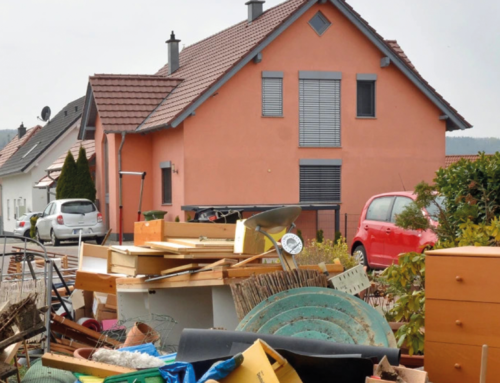Tackling a house full of clutter can feel like an impossible task, both practically and emotionally. Where to start? What to keep and what to throw away? What to do with the things you no longer need? This is why so many people call for help when they feel it is too large a job to tackle alone. Taken to the extreme, hoarding is a recognised psychological illness that must be treated with the utmost care and compassion.
However, working in small, methodical steps can help make the process of clearing out a cluttered home a bit easier. Beginning in one room, for example, or deciding to work for, say, 15 minutes a day can get you started on the process. Here are some more tips for sorting out the clutter.
Only handle it once
If you pick something up during a declutter, decide what to do with it straight away. Put it away, or set it aside to be thrown out, recycled, sold or given away. Then make sure you dispose of it quickly, or you will end up with even more piles of things than before. Never tell yourself you will think about it later, as you will inevitably move on to another area and forget all about it.
Don’t let new stuff in
Stop the inflow of ‘stuff’ by dealing with mail and newspapers as soon as they come in the door. Recycle anything unwanted and file or sort out the rest. Have a good clear out of fridges and food cupboards before buying more groceries so that you don’t end up with lots of produce that is out of date and forgotten about. Avoid impulse purchases and sit on the decision for a couple of days before actually buying items that catch your eye. Set up a ‘one in, one out’ rule for clothes so that your wardrobes don’t get too crowded with identical copies of outfits and you can see what you own.
Dispose of anything not used in a year
Anything not used in the last 12 months, with the notable exception of irreplaceable mementoes like photos, ornaments etc., is probably not going to be missed if you get rid of it. That applies all over the house, from clothing to kitchen pots and pans. You may have to be ruthless -people set a great deal of store by items such as books or music collections, but if they are simply gathering dust on a shelf are they really adding as much value as you thought? Get rid of those half-finished craft or DIY projects too. After a year, are you really going to complete them?
Take care of yourself
Finally, if you start to feel anxious during the decluttering process, then stop. Take a rest or do something different for a while to restore your composure. Parting with possessions can be emotionally difficult, especially if there are lots of memories attached to them. Ask a friend to assist you, or call in a specialist decluttering company to help. You may find their more objective approach will help you work out what do you and do not want to keep. Reward yourself along the way, perhaps marking each time you complete a room or cupboard. If you are concerned about more serious issues around hoarding, either for yourself or a friend or family member, consult your GP or a mental health professional for advice.






